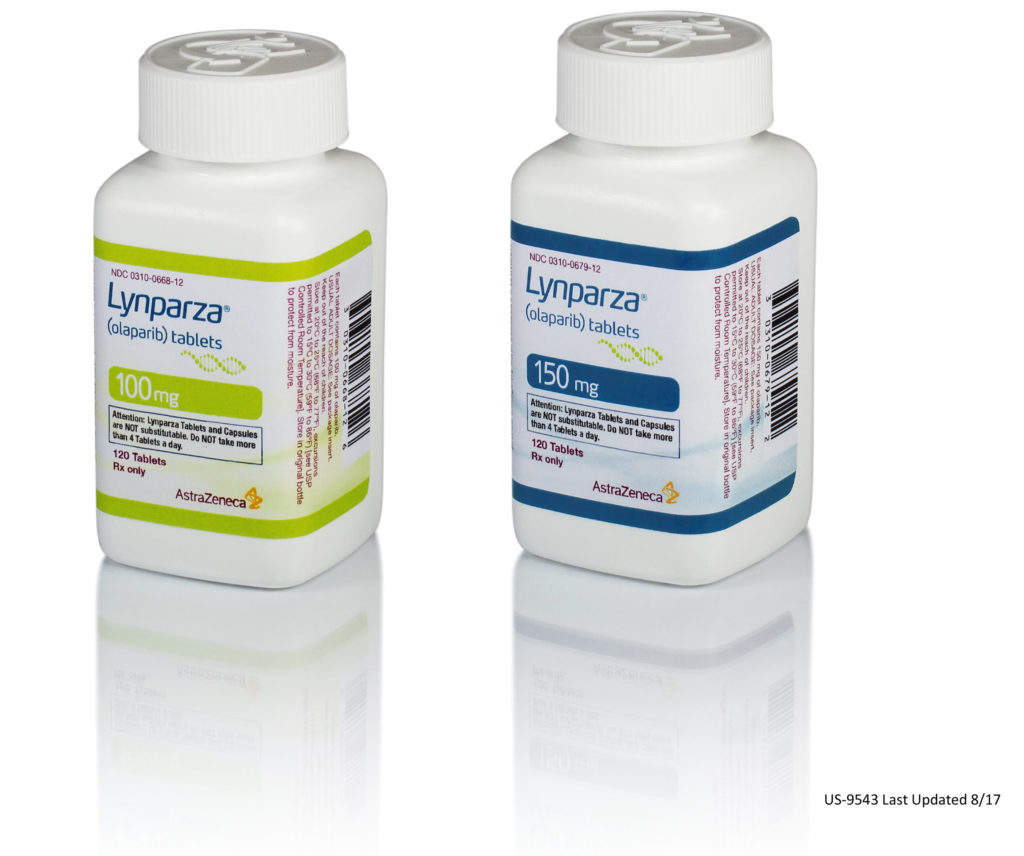AstraZeneca and Merck have secured priority review from the US Food and Drug Administration (FDA) for Lynparza as a maintenance therapy for patients with newly-diagnosed, BRCA-mutated (BRCAm) advanced ovarian cancer.

Image: Lynparza tablets. (Credit: AstraZeneca)
Subscribe to our email newsletter
The priority review for Lynparza (olaparib) is for the maintenance treatment of such patients who had shown complete or partial response after first-line standard platinum-based chemotherapy.
The FDA set a Prescription Drug User Fee Act (PDUFA) date in the first quarter of 2019 for the poly ADP-ribose polymerase (PARP) inhibitor.
According to AstraZeneca and Merck, this is the first regulatory submission acceptance in the US for a PARP inhibitor in the first-line maintenance setting for advanced ovarian cancer. If approved, Lynparza will have a fourth indication in the US.
The supplemental New Drug Application (sNDA) submitted for the drug with the FDA was based on data from the phase 3 SOLO-1 trial.
In the late-stage trial, Lynparza was shown to deliver a statistically-significant and clinically-meaningful improvement in progression-free survival (PFS) in comparison to placebo. The AstraZeneca and Merck drug was shown to have cut down the risk of disease progression or death by 70% in patients with newly-diagnosed, BRCAm advanced ovarian cancer, who were in complete or partial response to platinum-based chemotherapy.
Currently, Lynparza has approvals across more than 60 countries for the treatment of platinum-sensitive relapsed ovarian cancer, irrespective of BRCA status. The PARP inhibitor is also approved in various countries, including the US and Japan, for the treatment of germline BRCAm HER2-negative metastatic breast cancer.
Lynparza has been designed to exploit DNA damage response (DDR) pathway deficiencies, such as the BRCA mutations, to preferentially eliminate cancer cells.
In vitro studies, in particular, have shown that Lynparza-induced cytotoxicity could involve hindrance to PARP-enzymatic activity and increased formation of PARP-DNA complexes, thereby resulting in DNA damage and death to cancer cells.
Last month, the PARP inhibitor was granted the orphan drug designation (ODD) from the FDA for the treatment of pancreatic cancer. Lynparza is being assessed for its use in pancreatic cancer in a phase 3 trial dubbed as POLO.
 Advertise With UsAdvertise on our extensive network of industry websites and newsletters.
Advertise With UsAdvertise on our extensive network of industry websites and newsletters.
 Get the PBR newsletterSign up to our free email to get all the latest PBR
news.
Get the PBR newsletterSign up to our free email to get all the latest PBR
news.

